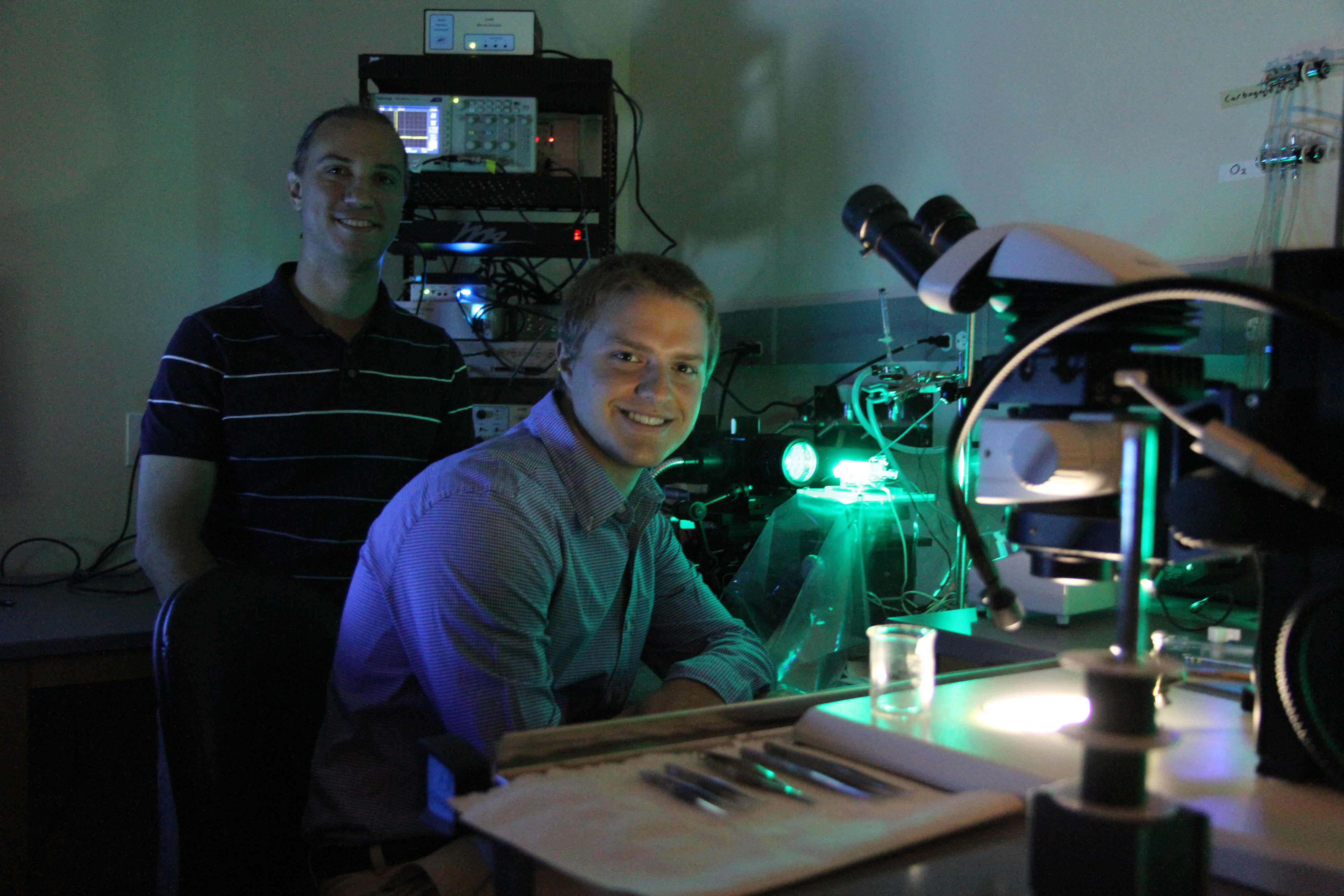Summer undergraduate research: Student investigates matters close to the heart

It’s a tragic and unexpected story: A healthy 20-something-year-old runner goes out for a jog and suddenly collapses and dies. Sudden cardiac arrest results in as many as 450,000 deaths each year in the United States, and scientists are working hard to understand the complexities of why a heart stops beating.
Unlike a heart attack, which occurs when blood flow to a portion of the heart is blocked, cardiac arrest is typically caused by an electrical disturbance in the heart that disrupts pumping action, according to the Mayo Clinic. While genetics can certainly play a role in heart malfunction, scientists are also investigating contributing environmental factors to better understand these deadly combinations and to prevent future deaths.
Spencer Lovegrove of Roanoke, Va., a rising junior majoring in biological sciences in the College of Science, will study sudden cardiac arrest this summer as part of the prestigious Fralin Life Science Institute Summer Undergraduate Research Fellowship program.
His mentor for the project is Steven Poelzing, an associate professor at the Virginia Tech Carilion Research Institute and the Virginia Tech-Wake Forest University School of Biomedical Engineering and Sciences.
“We want to know why people with inflammation, either caused by diabetes, flu, or infection, are at increased risk for sudden cardiac death,” Poelzing said. “One of our working hypotheses is that during inflammation there is a lot of water deposited into the tissue, one of those tissues being the heart.”
The body’s inflammatory response to infection, as well as some drugs that are prescribed to combat that response, leads to increased water in the heart tissue, Poelzing said. As a result, the person is at an increased risk for arrhythmia, or a non-standard heart beat rhythm that precipitates sudden cardiac arrest.
For his summer project, Lovegrove will specifically examine the effect that flu infection has on increased water in the heart. He will examine the function of the connexin protein, which is responsible for keeping heart cells electrically hooked up to each other, in normal hearts and when the hearts experience an increased water load (edema).
Lovegrove will use optical technology to monitor the electrical activity and water deposition in the hearts of mice possessing this particular protein and he will compare his results with those previously collected by Poelzing’s graduate students. Depending on what is found, the team will then move forward to investigate how inflammation modifies the relationship between connexin and edema.
This research project is important to Lovegrove because his sister died of cardiac arrest when she was 18. He sought out Poelzing as a fellowship mentor because he was intrigued by his research program.
After graduation from Virginia Tech, Lovegrove says he plans to attend medical school. He currently serves as a residential advisor for West-Ambler Johnston Hall at Virginia Tech.
During the summer of 2013, more than 250 students are taking part in undergraduate research experiences through more than a dozen programs on campus. The Office of Undergraduate Research is coordinating workshops and activities for the programs' participants through the summer. Students will present their work at the Virginia Tech Summer Undergraduate Research Symposium on Wednesday, July 31.




